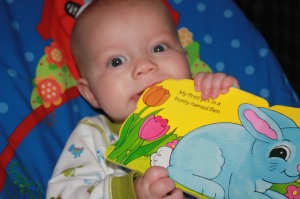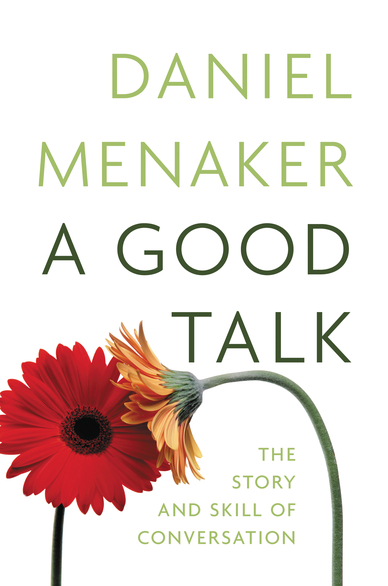Friends,
I don’t know about you, but these are some trying times—financially, spiritually, emotionally, physically. Here are a few recent personal events, some almost laughable…my cat got bitten by a snake and his arm swelled to twice the size. My dog’s hind legs are going lame. The microwave broke. A man in a truck hit the back of my car. I had an acute case of pancreatitis and endured a two day hospital stay…just after we’d switched to THE WRONG health insurance.
But you know what’s right? So much more. My family. Our health. Our love. Our faith. God doesn’t forsake us.
It’s in times like these that I look to the ground in the grocery store and see a handwritten note with this on it:
“Do not be anxious about anything, but in everything, by prayer and petition, with thanksgiving, present your requests to God. And the peace of God, which transcends all understanding, will guard your hearts and your minds in Christ Jesus.” Phil 4:6-7
Or I turn on the car radio and hear Casting Crowns singing this:
”… once again, I say amen
and it’s still raining
as the thunder rolls
I barely hear You whisper through the rain,
“I’m with you”
and as Your mercy falls
I raise my hands and praise
the God who gives and takes away. “
”And I’ll praise you in this storm
and I will lift my hands
for You are who You are
no matter where I am
and every tear I’ve cried
You hold in your hand
You never left my side
and though my heart is torn
I will praise You in this storm”
Now, this doesn’t make me forget about the good friend who passed away before Christmas or the uncle who is dying now of cancer, the family members who are losing their homes, the people in Haiti who are suffering from the quake…but I tell you what. We, as committed followers of Christ are not guaranteed to have NO troubles. After all, we live in this world. We do, however, have a faith this is not of this world. Not at all. We have access to an amazing PEACE even in the storms. I don’t know about you, but in these trying times, my faith allows me to remember all the things the Lord has delivered me from. He will deliver me, too, from these storms, and oh, when he does, how much more can I testify! What a blessing to be able to write and share hope and faith with those who have none. Aren’t we blessed?? Here’s a little story I wrote that says just that. Enjoy.
THE BOY IN THE BOX
By Nicole Seitz
There once was a boy who lived in a box. All he saw was black. All he heard was the grumble of his belly. Loneliness was crisp and cool like frost in his bones.
One day, he awoke to find a small hole in the side of his box. A thin stripe of light fell across his knee. He moved closer to the hole. He pressed his eye up to it and couldn’t believe what he could see.
There were colors—red, pink, yellow, white, blue, green, purple—his mind sparkled. He saw chairs in a room and suddenly felt uncomfortable on the hard ground. He saw food on a table, and the grumbling in his belly grew louder. His mind whirled with all he saw, and suddenly he longed to be out there. Outside of his box.
But he didn’t know how.
So he sat, and sat. Another two days he sat. He studied the room outside his box, the floor, the chairs, the table with food. Then he watched a boy walk in a door. Later, he watched him walk out again. In and out. The boy in the box studied how the door worked. It was just a large hole in a very large wall.
The next morning, the boy in the box knew what he had to do. He started at the small hole and used his finger to tear, slowly at first, then faster until light spilled all over him, and he smiled with warm delight.
The boy crawled out of his box and for the first time, stood tall. His legs and back were sore and stiff, but he was free from his box, free from the darkness. At the table, he sat in a real chair and filled his belly until it didn’t grumble anymore. He moved about, stretched his legs, and learned everything he could about his colorful new room.
After a few days, the boy stood in front of a door. Something stirred inside him. He wanted to open it, but he was afraid. What would he find out there? Didn’t he have everything he needed here in this room? It was certainly more comfortable than his box had been.
The boy looked at it now, the box, squat in the corner, and couldn’t believe he’d ever fit inside. He knew he could never return—he’d grown too much, seen too much, learned too much. So he turned, gathered his courage, and opened the door.
The smell of green grass and the song of birds beckoned. He set one foot out and held his hand up to shield his eyes from the sun. The glorious light! And white puffy clouds in a lavender sky, and houses with people in them, and streets, and cars, and trees, and flowers, and squirrels, and cats, and barking dogs. The boy wondered why he hadn’t stepped outside sooner.
He walked along the sidewalk, passing house after house, until he came to one with the door cracked open. He knocked, but no one answered. He walked inside and saw a very nice room with colors and chairs and a table with food.
And in the corner, he saw a box.
The boy crept closer and knocked on the cardboard.
“Hello?” said a voice from inside the box.
“You okay in there?”
“Yes, I think so.”
“But you’re in a box.”
“I am? Well, I live here.”
“There’s more to life than the black of your box.”
“There is? I didn’t know.”
“Here.” And the boy poked a stick in the side of the cardboard. He heard the box-dweller rustle inside.
“Wow. There’s a stripe of light across my knee.”
“I know. It’s wonderful. And that’s just the beginning.”
The boy who had once lived in a box was smiling now, and holding his stick, he walked out of the house and down the sidewalk to find other children living in houses, living in rooms, living in boxes, in darkness. He knew they were out there. Just as he had been.
They were all over the world.
Suddenly, the boy had a new longing.
 www.nicoleseitz.com
www.nicoleseitz.com

 My hope is that books will always hold such interest for him and that in a few years we’ll move to chapter books and then in a few more years I’ll start sharing young adult novels from some authors I know personally. But whether he likes Mommy’s books best or really prefers nonfiction like Daddy does, Reid confirms for me that reading is not a declining pastime and that printed books themselves are not dead. There will always be a place for great stories and for great storytellers. Hand, Hand, Fingers, Thumb, after all, was first published in 1969.
My hope is that books will always hold such interest for him and that in a few years we’ll move to chapter books and then in a few more years I’ll start sharing young adult novels from some authors I know personally. But whether he likes Mommy’s books best or really prefers nonfiction like Daddy does, Reid confirms for me that reading is not a declining pastime and that printed books themselves are not dead. There will always be a place for great stories and for great storytellers. Hand, Hand, Fingers, Thumb, after all, was first published in 1969.






